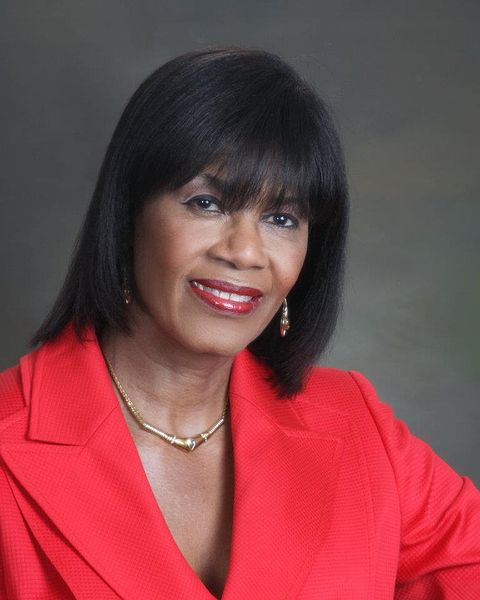Hello ladies and gents this is the viking telling you that today we are talking about

Portia Lucretia Simpson-Miller

Portia Lucretia Simpson-Miller, ON, is a Jamaican politician. She served as Prime Minister of Jamaica from March 2006 to September 2007 and again from 5 January 2012 to 3 March 2016. She was the leader of the People's National Party from 2005 to 2017 and the Leader of the Opposition twice, from 2007 to 2012 and from 2016 to 2017.
While serving as Prime Minister, Simpson-Miller retained the positions of Minister of Defence, Development, Information and Sports. She has also served as Minister of Labour, Social Security and Sport, Minister of Tourism and Sports and Minister of Local Government throughout her political career. Following her second election win in December 2011, when her party defeated the Jamaica Labour Party, she became the second individual since independence to have served non-consecutive terms as prime minister, the first having been Michael Manley.
The People's National Party under her leadership lost the 25 February 2016 general election to the Andrew Holness-led Jamaica Labour Party.
Simpson-Miller was elected in 1976 to the Parliament of Jamaica, to represent the constituency of South West St. Andrew Parish, as a member of the People's National Party. The PNP boycotted the elections called in 1983. She was re-elected to the same seat in a later election, and served as Minister of Labour, Welfare and Sports from 1989 to 1993. She was Minister of Labour and Welfare from 1993 to 1995, Minister of Labour, Social Security and Sports from 1995 to February 2000, Minister of Tourism and Sports from February 2000 to October 2002, and Minister of Local Government and Sport since October 2002.
She served as vice president of the PNP from 1978 to 2006, when she became its president. In the PNP's internal vote to elect P. J. Patterson's successor, held on 26 February 2006, she received 1,775 votes, while her nearest rival, then security minister Dr. Peter Phillips, took 1,538 votes. She garnered approximately 47% of the delegates' vote, making her the first PNP president to be elected by less than half of eligible delegates. In July 2008, Simpson-Miller was challenged for the presidency of the PNP by Phillips. The election was held among the party's delegates on 20 September. She was re-elected as the head of the PNP for her second consecutive year, defeating him by an even wider margin than that of the previous election.
Prime minister
Simpson-Miller replaced Patterson as prime minister on 30 March 2006, becoming the first female head of government of the nation and the third in the Anglophone Caribbean, following Eugenia Charles of Dominica and Janet Jagan of Guyana. In organising the cabinet following her swearing-in, she assumed the portfolio of defence minister.
2007 elections
On 3 September 2007, Simpson-Miller's party narrowly lost the general election, retaining 27 seats against the rival Jamaican Labour Party's 33 seats. This margin was revised to 32–28 after recounts and an election petition decision concerning the eligibility of a government MP who had dual citizenship.
The loss can in part be attributed to a well planned and executed campaign by the JLP. A part of their campaign strategy was a media blitz that claimed to highlight 18 years of neglect under the PNP and the incompetence of Simpson-Miller as a leader. One advertisement highlighted the deplorable conditions in Simpson-Miller's own constituency of South West St. Andrew while others were created from controversial interviews and still others discussed issues surrounding her competence as a leader.
Simpson-Miller initially refused to concede defeat, alleging voting irregularities and the possibility that recounts would change the final result. The Organization of American States issued a statement declaring the election free and fair. "I believe this election can stand international scrutiny," said OAS assistant secretary-general Albert Ramdin, who led a team of international observers who monitored the election. She conceded defeat on 5 September. On 11 September, Simpson Miller was succeeded as prime minister by JLP leader Bruce Golding.
In 2011, Golding resigned, making way for Andrew Holness to become the 9th Prime Minister of Jamaica.
2011 election
On 5 December 2011, Holness asked the Governor-General, Sir Patrick Allen, to dissolve parliament and call an election, despite the fact that elections were not constitutionally necessary until September 2012. The date of the 2011 election was set as 29 December and major local media outlets viewed the election as "too close to call". However, as Simpson-Miller campaigned in key constituencies, the gap widened to favour the PNP. Days before the election, Simpson-Miller came out fully in favour of LGBT rights in a televised debate, sparking an eleventh-hour controversy ahead of the vote.
In early vote counting on 29 December, it was apparent that the PNP was winning a large number of swing constituencies. By evening, the Jamaica Observer had declared 41 of 63 constituencies for the PNP. The election results were officially declared by the Electoral Office on 5 January and, upon the request of the Governor General, Simpson-Miller formed the new Jamaican government.
2016 elections
Simpson-Miller lost to Andrew Holness by a two-seat majority on 25 February 2016. A recount then granted her party an additional seat, resulting in a one-seat loss with the PNP holding 31 seats to the Jamaican Labour Party's 32. As a result, Simpson-Miller became Opposition Leader for a second time.
Following calls from within her own party for her to step down as party leader, Simpson-Miller announced she would not seek re-election on December 4, 2016. She was replaced by Peter Phillips, the Shadow Minister of Finance and former rival, on March 26, 2017. She stepped down as an MP in June 2017.
And as always have a chilled day from the Viking
Comments
Post a Comment